Sustainable Investing: A Guide to Ethical and Impactful Wealth Growth:- Sustainable investing is revolutionizing the way individuals and institutions grow their wealth while making a positive impact on the world. By integrating environmental, social, and governance (ESG) criteria into investment decisions, sustainable investing ensures that capital is allocated to businesses that prioritize ethical practices, sustainability, and long-term growth.
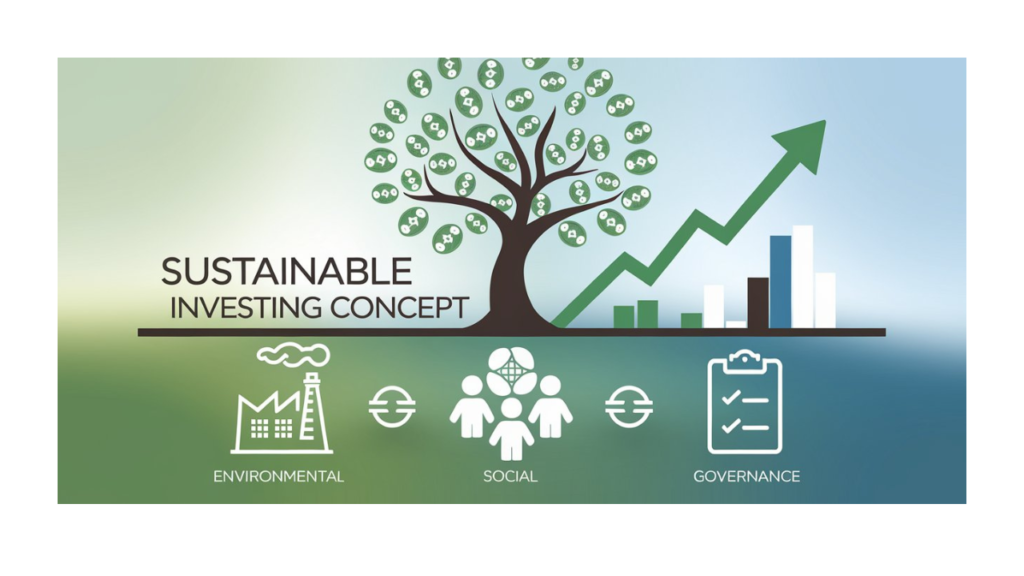
Table of Contents
What Is Sustainable Investing?
Sustainable investing, also known as socially responsible investing (SRI) or impact investing, involves making investment choices that align with ethical, environmental, and social values. It goes beyond financial returns by ensuring that companies operate in a way that benefits society and the planet. ESG principles play a crucial role in evaluating companies based on their environmental impact, social responsibility, and corporate governance policies.
Why Sustainable Investing Is Important
Sustainable investing addresses global challenges such as climate change, social inequality, and corporate transparency. By supporting responsible companies, investors can contribute to positive change while also mitigating financial risks associated with unsustainable business practices.
Key Strategies in Sustainable Investing
There are multiple approaches to sustainable investing, including:
- ESG Investing – Selecting companies based on ESG performance criteria.
- Socially Responsible Investing (SRI) – Screening out companies involved in harmful industries (e.g., tobacco, weapons, fossil fuels).
- Impact Investing – Investing in companies that directly address social or environmental issues.
- Thematic Investing – Focusing on specific themes such as renewable energy, clean technology, or gender equality.
Avoiding Greenwashing in Sustainable Investing
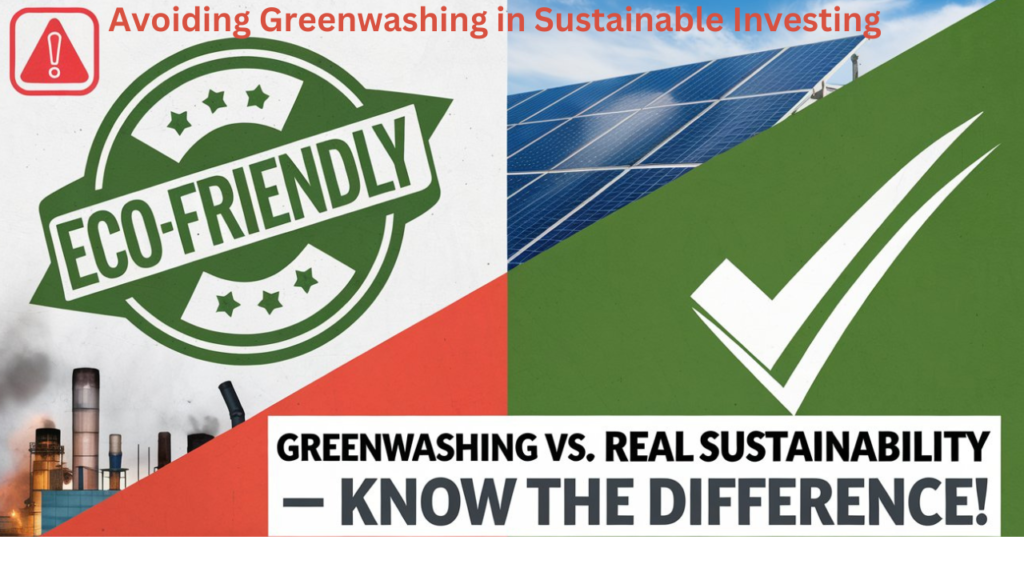
One of the biggest concerns in sustainable investing is greenwashing—when companies falsely claim to be environmentally friendly to attract ethical investors. This deceptive practice misleads investors and dilutes the impact of genuine sustainable investments.
What Does Greenwashing Mean in Sustainable Investing?
Greenwashing refers to misleading marketing tactics used by companies to appear more environmentally responsible than they actually are. For example, a business might highlight its use of recycled packaging while ignoring its significant carbon emissions. To avoid greenwashing, investors should:
- Look for third-party ESG certifications and reports.
- Examine a company’s actual sustainability initiatives beyond branding.
- Compare claims with independent ESG rankings and audits.
Top Platforms for Sustainable Investing
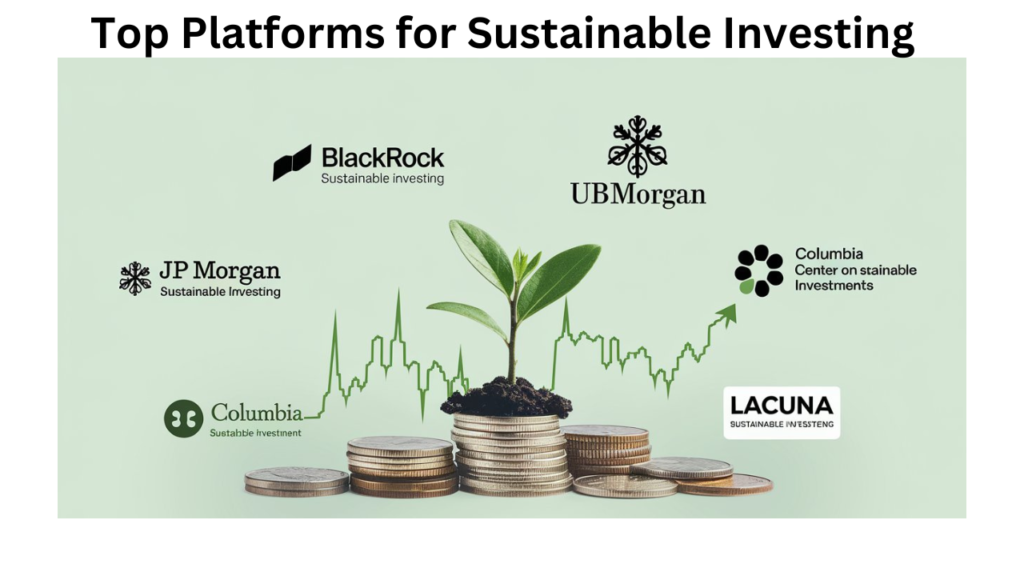
If you’re looking to invest sustainably, consider these platforms that offer ESG-focused investment portfolios:
- BlackRock Sustainable Investing – A leader in ESG investment funds.
- JP Morgan Sustainable Investing – Offering a range of responsible investment options.
- UBS Sustainable Investing – A global provider of sustainable portfolio solutions.
- Columbia Center on Sustainable Investment – Providing research and insights into sustainable investments.
- Lacuna Sustainable Investments – Specializing in socially responsible funds.
- Carica Sustainable Investments – Focused on impact-driven investment opportunities.
Additionally, private equity sustainable investing is gaining traction, with firms focusing on green energy, sustainable agriculture, and ethical supply chains.
Sustainable Investing Trends and Future Outlook
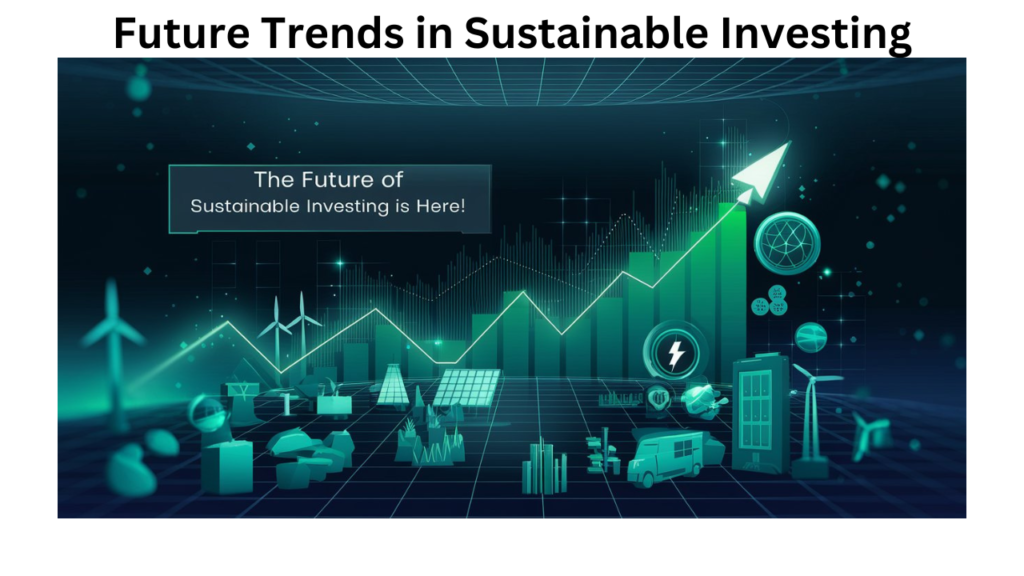
Sustainable investing continues to grow as investors recognize its financial and ethical benefits. Some key trends include:
- Rise of ESG Sustainable Investment Awards – Recognizing excellence in responsible investing.
- Increased Demand for ESG Reporting – Investors expect greater transparency from companies.
- Expansion of Green Bonds and Climate Funds – Financing projects that combat climate change.
- Growth in Sustainable Investing Jobs – Creating career opportunities in ethical finance.
How to Start Investing in Sustainability
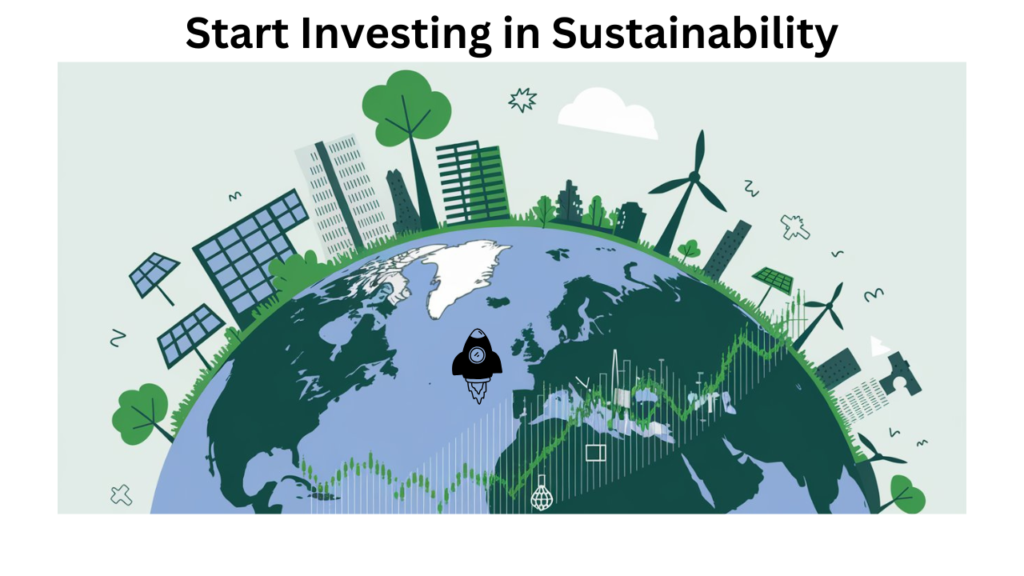
For those new to sustainable investing, here are some steps to get started:
- Define Your Values – Identify the social and environmental issues you care about.
- Research Investment Firms – Choose firms that align with your ethical priorities.
- Evaluate ESG Ratings – Look at third-party ESG rankings before investing.
- Diversify Your Portfolio – Balance impact-focused investments with financial stability.
- Monitor Performance – Stay informed about industry trends and company reports.
Conclusion
Sustainable investing is more than just a financial strategy—it’s a commitment to creating a better world while securing long-term wealth. By understanding what sustainable investing is, avoiding greenwashing, and leveraging top investment platforms, you can make informed decisions that align with your values and financial goals. Whether you’re an individual investor or managing institutional funds, embracing sustainable investing is a powerful way to drive positive change.
Author: allykazmi
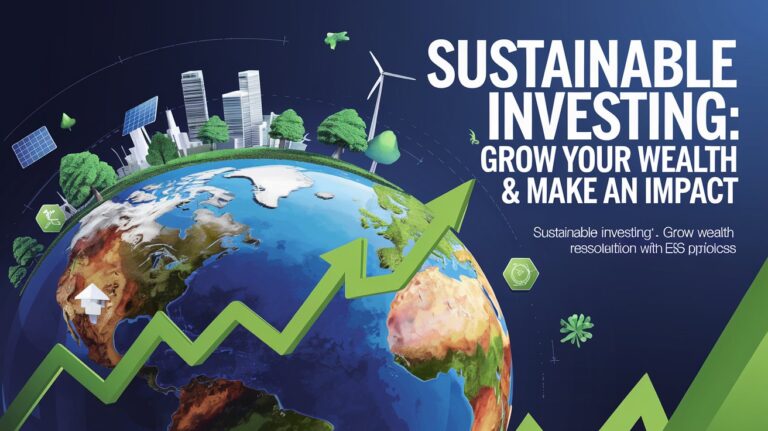
1 thought on “10 Powerful Benefits of Sustainable Investing for a Better Future”